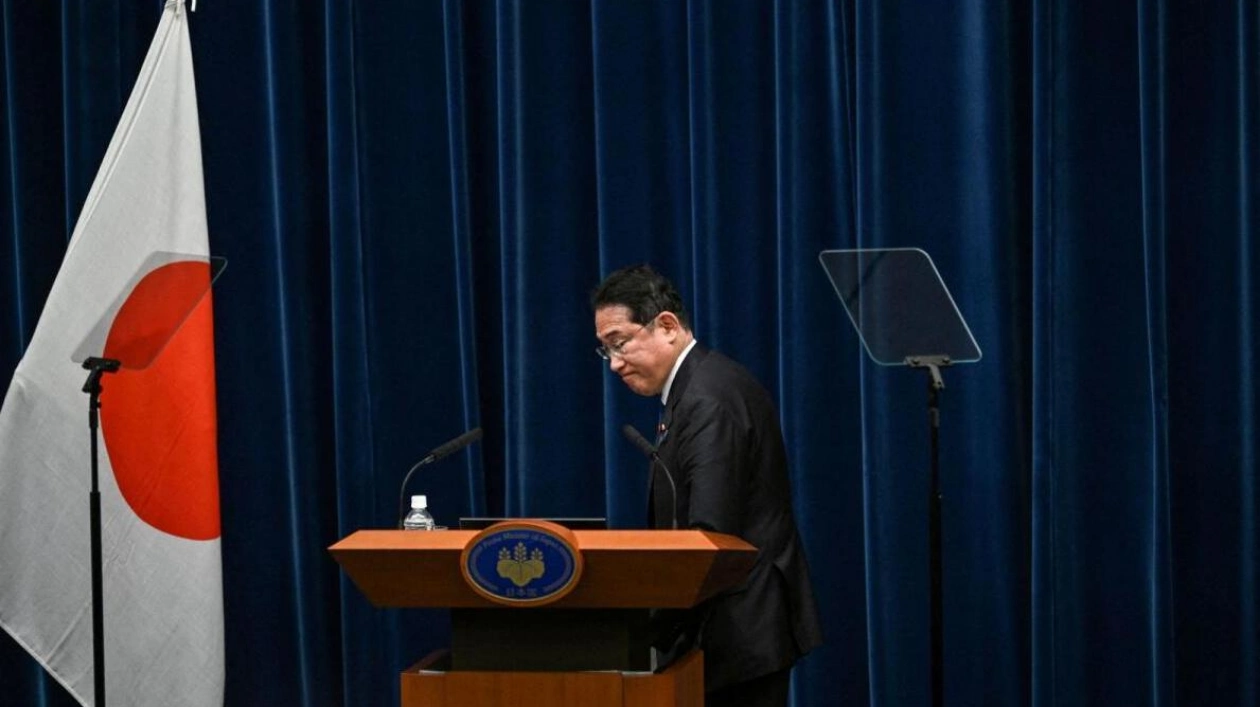Prime Minister Fumio Kishida's decision to resign has introduced political uncertainty, likely causing a temporary halt in the Bank of Japan's (BoJ) gradual interest rate increase plan from near-zero levels. The duration of this pause will depend on the outcome of the ruling party's leadership contest and market dynamics influencing the political discourse on the appropriate rate hike pace, according to analysts.
Kishida, who appointed Kazuo Ueda as BoJ governor last year, announced on Wednesday that he will not participate in the Liberal Democratic Party's (LDP) leadership race in September. The BoJ collaborated closely with Kishida's government to promote the advantages of higher wages. Just before the BoJ's rate increase in July, Kishida expressed support for the central bank's policy normalization, indicating his endorsement for moving away from ultra-low interest rates. Kishida's exit creates a political void, increasing uncertainty around economic policy and complicating the BoJ's coordinated efforts to smoothly exit from accommodative monetary conditions.
Leading contenders for the LDP leadership mostly advocate for gradual increases in Japan's ultra-low interest rates, partly to prevent drastic yen depreciation. Shigeru Ishiba, considered a frontrunner to succeed Kishida, affirmed that the BoJ's gradual rate hikes were on the right track. Other prominent candidates, like Toshimitsu Motegi and Taro Kono, also emphasized the need for higher rates and assertive communication by the BoJ. Sanae Takaichi, a dark horse candidate, stands out as the only proponent of aggressive easing, supported by a party faction that backed former premier Shinzo Abe's stimulus policies.
The BoJ, by law, enjoys independence from government interference in monetary policy but has historically faced political pressure to utilize its easing tools to stimulate the economy. This tension is partly fueled by the government's authority to appoint BoJ board members, including the governor, subject to parliamentary approval. With the yen's weakness exacerbating household financial strain due to rising living costs, many politicians are likely to support gradual rate hikes for the time being, analysts predict. This implies that the BoJ will likely continue to raise rates, albeit at a slower pace than initially anticipated.
A survey by the Japan Center for Economic Research indicated that many economists expect another rate hike by the end of the year. The weak yen has become a major concern for many lawmakers, reducing political resistance to rate hikes compared to the past, according to a source familiar with the BoJ's perspective. Economic data showing a rebound in the second quarter due to strong consumption supports further rate hikes, analysts say. The BoJ has much at stake by abandoning its meticulously planned rollback of a decade-long radical stimulus program, which ended negative rates in March and raised short-term rates to 0.25% in July.
The BoJ remains an outlier in global monetary policy, maintaining ultra-low rates while its counterparts in the US and Europe have aggressively raised rates since 2022 to combat high inflation. Now, as these counterparts begin to ease, the BoJ is raising rates but is still far from policy normalization. Governor Ueda has argued that further rate hikes are necessary adjustments to excessive monetary support rather than a comprehensive tightening, a stance he is expected to uphold. However, the BoJ may choose to maintain its current stance at the next policy meeting on September 19-20, close to the LDP leadership race, to navigate the political and market turbulence.
The US presidential election could also increase market volatility, potentially delaying the BoJ's actions at its subsequent rate review on October 30-31. Analysts suggest the BoJ will refrain from raising rates at least until December, allowing time for political events in Japan and the US to unfold. The BoJ will also need to establish trust with the new prime minister, whose parliamentary approval may not occur until November. Ueda, an academic turned governor with limited political connections, faces challenges in effectively communicating with the new administration.
There is no assurance that politicians will continue to support rate hikes if the yen's downward trend reverses. A yen surge, partly triggered by the BoJ's July rate hike, led to a stock market crash, compelling the central bank to retreat from its hawkish stance. If the yen's weakness reverses, some politicians may start questioning the necessity for further rate hikes by the BoJ, according to Naomi Muguruma, chief bond strategist at Mitsubishi UFJ Morgan Stanley Securities.






